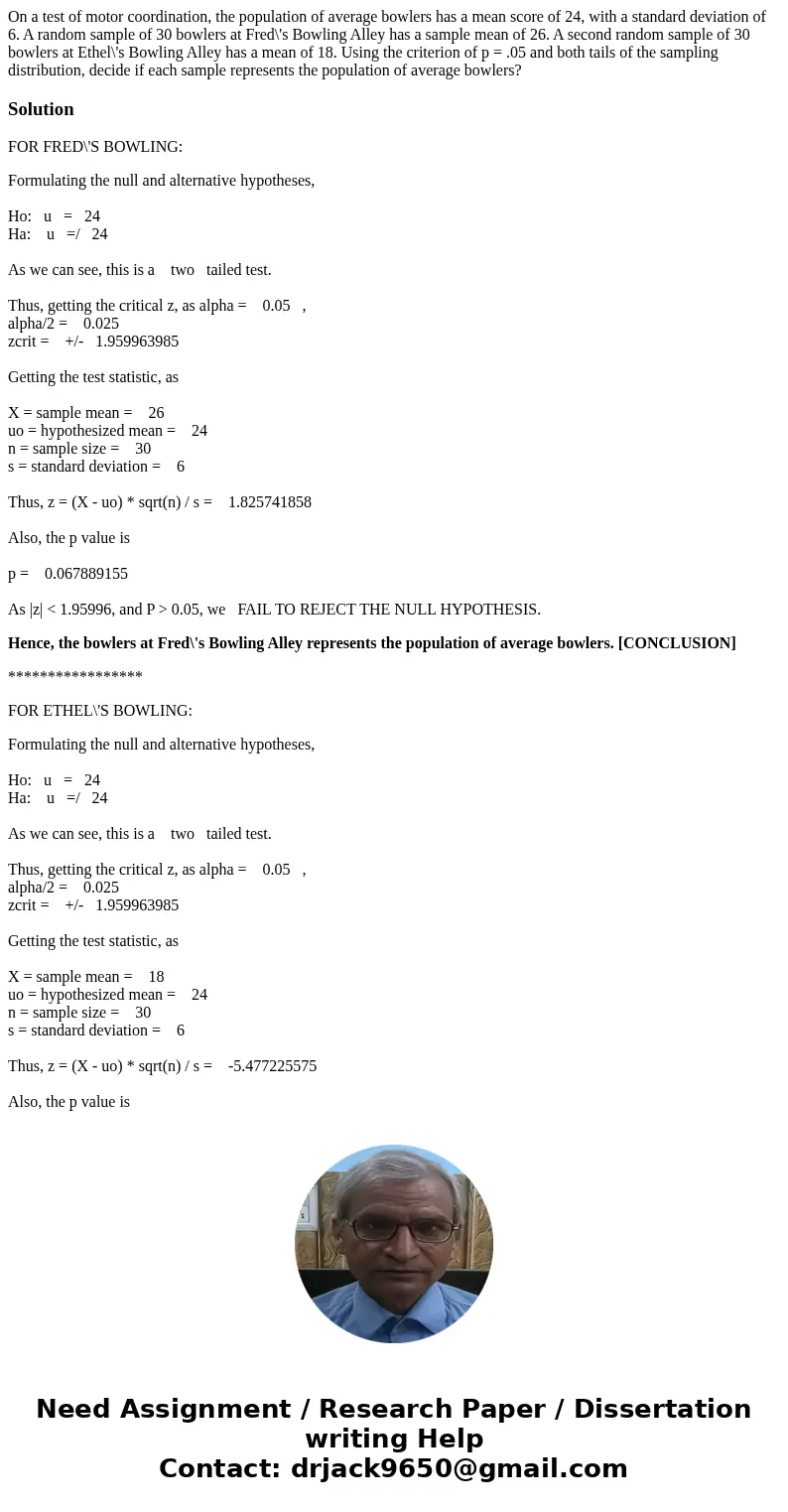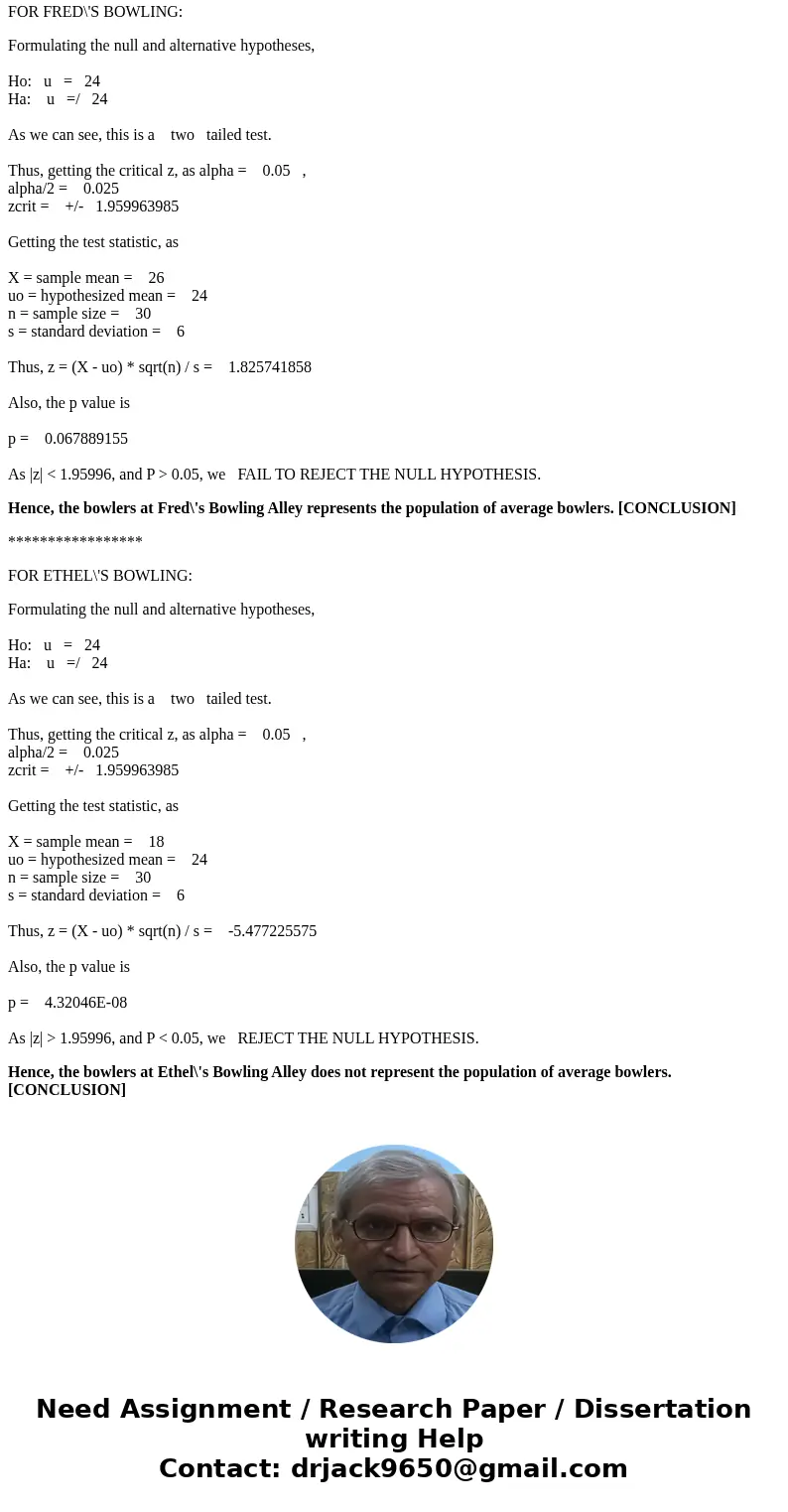On a test of motor coordination the population of average bo
On a test of motor coordination, the population of average bowlers has a mean score of 24, with a standard deviation of 6. A random sample of 30 bowlers at Fred\'s Bowling Alley has a sample mean of 26. A second random sample of 30 bowlers at Ethel\'s Bowling Alley has a mean of 18. Using the criterion of p = .05 and both tails of the sampling distribution, decide if each sample represents the population of average bowlers?
Solution
FOR FRED\'S BOWLING:
Formulating the null and alternative hypotheses,
Ho: u = 24
Ha: u =/ 24
As we can see, this is a two tailed test.
Thus, getting the critical z, as alpha = 0.05 ,
alpha/2 = 0.025
zcrit = +/- 1.959963985
Getting the test statistic, as
X = sample mean = 26
uo = hypothesized mean = 24
n = sample size = 30
s = standard deviation = 6
Thus, z = (X - uo) * sqrt(n) / s = 1.825741858
Also, the p value is
p = 0.067889155
As |z| < 1.95996, and P > 0.05, we FAIL TO REJECT THE NULL HYPOTHESIS.
Hence, the bowlers at Fred\'s Bowling Alley represents the population of average bowlers. [CONCLUSION]
*****************
FOR ETHEL\'S BOWLING:
Formulating the null and alternative hypotheses,
Ho: u = 24
Ha: u =/ 24
As we can see, this is a two tailed test.
Thus, getting the critical z, as alpha = 0.05 ,
alpha/2 = 0.025
zcrit = +/- 1.959963985
Getting the test statistic, as
X = sample mean = 18
uo = hypothesized mean = 24
n = sample size = 30
s = standard deviation = 6
Thus, z = (X - uo) * sqrt(n) / s = -5.477225575
Also, the p value is
p = 4.32046E-08
As |z| > 1.95996, and P < 0.05, we REJECT THE NULL HYPOTHESIS.
Hence, the bowlers at Ethel\'s Bowling Alley does not represent the population of average bowlers. [CONCLUSION]


 Homework Sourse
Homework Sourse